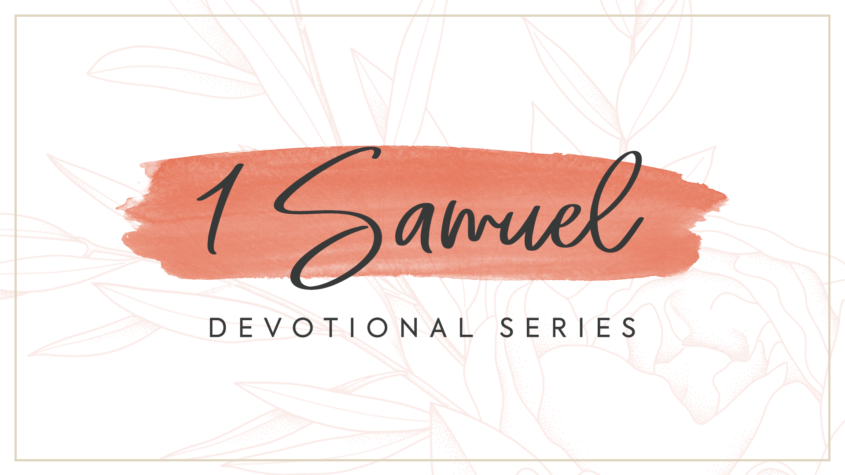Two hearts erupt in brotherly love from beginning to end in today’s passage. The son of King Saul, heir to the throne of Israel, right hand man to the king, has different sentiments of David. Jonathan feels connected to David. It is not weird. I compare Jonathan and David’s friendship to meeting another believer down the street, out of state, or across the world. You feel that instant connection because the Holy Spirit’s presence brightens their countenance. You are drawn to them and cannot fully explain why. Maybe what catches your heart is how they speak of the Lord and describe things through an eternal lens that refreshes you (Romans 12:9-12; Hebrews 10:23-24). We have front row seats to watch in a few quick chapters the culmination of Jonathan and David’s friendship.
Immediately, Jonathan gives his rightful inheritance to David. He hands over robe, armor, and sword. All things to signify status, power, and authority. Jonathan is not a bad apple like his father, Saul. What we know about Jonathan thus far is he loves and reveres the Lord. Why could the Lord not have anointed Jonathan to take over from his father and turn this bloodline around? The main reason is the better King Jesus comes through the line of Jesse, but I think another reason is to provide real people for me to learn from who walk by faith, bow in humility, and find ways to exalt the Lord over exalting themselves.
Q: Could you do what Jonathan did for David? What pride stands in the way from laying aside status and recognition so that another sister or brother can be raised up?
King Saul feels the writing on the wall intensify yet continues to grapple to rescue his throne. The way King Saul describes David’s success for Israel is “what more can he have but the kingdom?” (18:8) and stands in “fearful awe of him” (18:17). The Lord remains with David whether he finds himself on the battlefield as commander or stringing the lyre for King Saul’s troubled spirit.
Light-hearted laughter comes out as I notice what connects the end of chapter 18 to the next two chapters. After David marries Michal and provides double bride-price to King Saul, the next scene is where King Saul tells Jonathan they must kill David. He got married and then the hunt was on! I am not making this up, but I am kind of amused at the sequence of events.
David is in a constant state of “flee and escape”. King Saul tries to kill David in some crafty ways, that are unsuccessful because the Lord makes a way each time for David’s provision. At the end, we will look at two Psalms David pours out from his weary days on the run from King Saul. Before our eyes shift to the refuge David finds, look at the physical and emotional journey in chapter 20. Imagine as best you can what David feels in this moment to tell Jonathan in 20:3, “there is but a step between me and death.” Would David had surrendered if it had not been for the Lord anointed him? This is so important to call out. The Lord does not expect our human nature alone to overcome persecution or temptation thrown into our path. He calls us. He is the One before us and behind us like we see with David.
Jonathan and David come together to make a covenant with the Lord. They want the Lord to provide clarity with Saul, provision for David to escape, and favor for Jonathan when David’s enemies are destroyed (20:12-17). And the Lord is gracious to give Jonathan and David one last moment together. The last two verses tear your heart out. The closest I can relate this moment to is soldiers in war. “Go in peace David, because we have sworn both of us in the name of the Lord” is the reminder Jonathan shares with David that the Lord’s covering, His sovereignty, and His mercy is over their lives.
How did David survive the escape from King Saul? Psalms 11 and 59 are wrapped in the theme that the Lord is my refuge. David writes both psalms after he departs from Jonathan. Is writing poetry the easiest way for David to remember the Lord? To draw near, worship, and rest in the Lord? David proclaims the Lord is on His throne in heaven. He places confidence in the Lord’s constant state of sovereignty and not in David’s constant fleeing for his life. David finds refuge and rest in the Lord.
In moments of fear, affliction, or outright attacks from the enemy—David asks the Lord to win the battle for His name’s sake. This simple act of humility reminds us we are weak, and the Lord is not. David built a reputation for taking out the fiercest giant, yet in Psalm 59, the Lord is who David calls “my strength” and “my fortress”. This warrior needs the Lord. David postures his heart in humility and absolute dependence on the Lord. And David rejoices every time the Lord lavishes His steadfast love and mercy on him.
Q: How can you choose to take refuge in the Lord? Know that His love and rest are for you, too.
